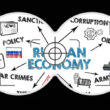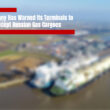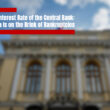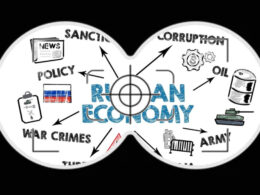The Kiel Institute for the World Economy (IfW Kiel) assessed the annual costs that Germany would face if it stops sending arms to Ukraine and Russia wins. The conclusion: halting military aid would cost Germany ten to twenty times more.
The Sahra Wagenknecht alliance, the AfD, and a faction of the SPD all oppose armament deliveries to Ukraine, albeit for different reasons. According to Wagenknecht, the war cannot be stopped without making compromises. Tino Chrupalla, the AfD leader, believes that Germany is prolonging the war. And the SPD’s left wing believes it is feasible to halt the war.
The Kiel Institute assumes that if Russia triumphs, it will dictate the terms of a ceasefire. This would result in more occupied territory and the installation of a puppet government in Kyiv.
According to the report, Russia may be encouraged by this military success to seize control of the Suwalki Gap, a land corridor that separates Belarus and Kaliningrad, to cut off the Baltic States from the rest of Europe. The European Union and NATO would then need to boost their conventional military capabilities even further than they currently intend to.
Germany would then be forced to invest in more military equipment to discourage Russia from escalating the situation. The Kiel researchers also believe that Germany would have to send multiple combat brigades to the Baltics. Under this scenario, Germany’s annual additional costs would be between 1 and 2 percent of GDP, which is about 10–20 times more than the current military support for Kyiv.
Of course, such calculations contain great uncertainty. However, compared to Germany’s economic strength, the support is low, currently ranking 16th. Other European countries, including Denmark, the Baltic States and many others, spend a much larger share of their economic output on Ukraine.
The increase is expected anyway. However, in case of possible Russian victory Germany could soon have to spend on defence not just 2 percent of its GDP, but 3.5 to 4 percent.
Europe would also face an influx of large numbers of refugees. In a negative scenario, between 1.9 and 3.8 million people could arrive in Germany alone.
The Kiel researchers have also come to conclusions that a successful Russian invasion would signal to other countries, such as China or North Korea, that military aggression can be a successful strategy. This would undermine the norm of peaceful conflict resolution and further destabilize the global order.
The study by the Kiel Institute for the World Economy also contains a message regarding the presidential election in the USA. Europe must be able to continue providing military aid to Ukraine in a credible and robust manner, even without the United States. It must eventually increase arms production and muster the political will to “become a geopolitical actor”.
The Kiel researchers conclude that Germany’s military support for Ukraine is not only in the country’s political, security and economic interest. By maintaining credible deterrence and increasing military assistance, Germany can help convince the Kremlin that the war cannot be won at an acceptable cost.








